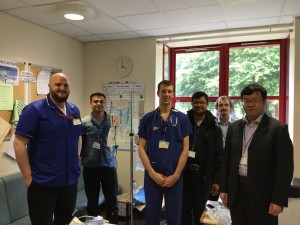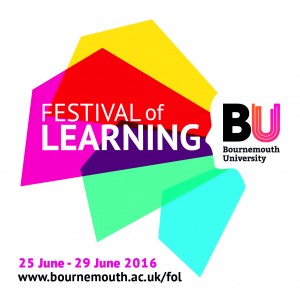
The project team from the Faculty of Science & Technology has received Higher Education Innovation Funding (HEIF) to undertake a series of activities aimed at encouraging university and the public sector to harness the benefits of advanced assistive technologies. (The HEIF project started last year and is due to finish at the end of July.)
The nature of HEIF funding encourages knowledge exchange and support to develop a broad range of knowledge based interactions between universities and colleges and the wider word, which result in economic and social benefit to the UK. In current clinical practices, urinary output measurement and supervision are prevailing medical intervention treatments for patients suffering from critical illness, aging bladder, post-surgery urination difficulties and long-term bedridden. However, the urinary output is still measured and monitored manually by healthcare staff, which is extremely time-consuming and prone to undesirable human errors commonly, arose in these repetitive and monotonous tasks. The project aims to invent an automatic device for remotely monitoring of urinary output, which features real-time remotely wireless catheter fall-off and flow rate monitoring, urinary output minute-by-minute monitoring and real-time states visualization.
The project team is made up of a number of researchers and students from multidisciplinary domains in addition to academics. The team (Prof Hongnian Yu, Mr Arif Reza Anwary; Mr Daniel Craven, Mr Muhammad Akbar, and Mr Pengcheng Liu) has recently presented their three developed prototypes at the collaborator’s site (Royal Bournemouth Hospital). The feedback and comments from the hospital staff are very positive. Dr Simon McLaughlin, the project collaborator from the Royal Bournemouth Hospital, said ‘The project looks to have progressed well. The work is excellent and the one of the prototypes is almost ready to deploy.’
The team hope to continue to consolidate the current developed prototypes and build on top of them to invent the commercially acceptable products.







![InnovateUK_LogoA_Interim_RGBx320govuk[1]](http://blogs.bournemouth.ac.uk/research/files/2014/12/InnovateUK_LogoA_Interim_RGBx320govuk11-300x90.jpg) Open funding competition
Open funding competition 











 Read and sign up to BU’s Policy Influence Digest
Read and sign up to BU’s Policy Influence Digest Upcoming opportunities for PGRs – collaborate externally
Upcoming opportunities for PGRs – collaborate externally BU involved in new MRF dissemination grant
BU involved in new MRF dissemination grant New COVID-19 publication
New COVID-19 publication MSCA Postdoctoral Fellowships 2024
MSCA Postdoctoral Fellowships 2024 Horizon Europe News – December 2023
Horizon Europe News – December 2023